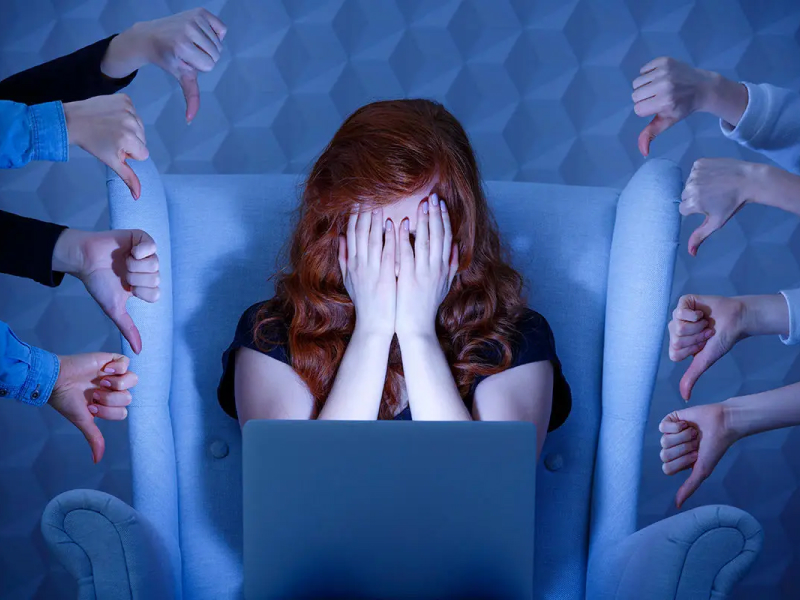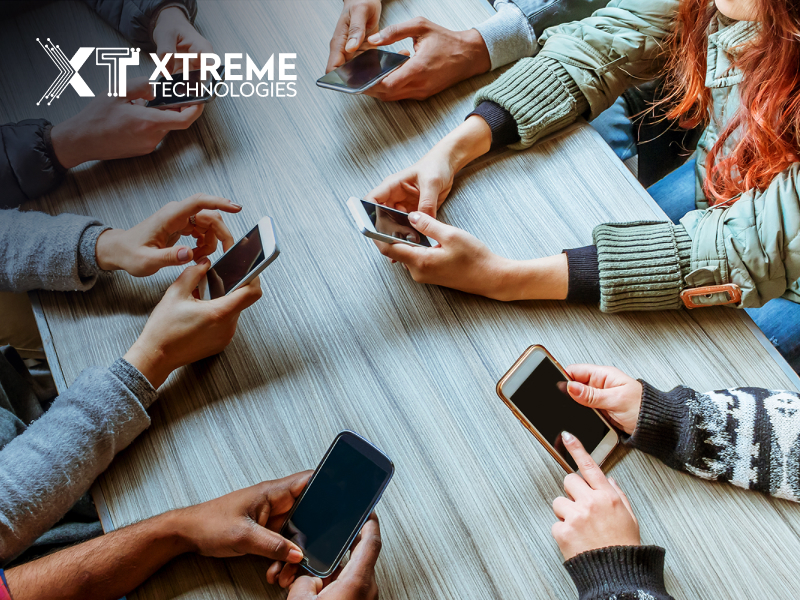
Social Media: 8 Reasons Why it’s Toxic to Mental Health?
Published on: July 06, 2023
A growing trend on social media is promoting positive mantras and encouraging messages. This can be helpful, but it can also be toxic. The problem with this type of positivity is that it tries to stifle negative impacts on mental health. It can cause people to feel insecure about their lives, especially when they see airbrushed pictures of others on vacation.
-
It’s easy to get caught up
Social media has both positive and negative impacts on mental health. On the one hand, it can build community and provide a platform for self-expression. Still, it has also been linked to depression, low sleep quality, loneliness, and reduced life satisfaction (American Journal of Epidemiology). In addition, social media is prone to polarization and filter bubbles.
People who use social media often find themselves in a bubble of content that aligns with their preferences, and they can become easily seduced by “likes” and other forms of validation. This can lead to addiction and even mental illness.
 Moreover, Social media (toxicity) can lead to comparison and the formation of toxic relationships. Some millennials have reported feeling envy of the lives of their friends on social media, which has led to poor performance in school and work and an overall lack of happiness. As a result, many are seeking ways to feel happier and more fulfilled in their lives.
Moreover, Social media (toxicity) can lead to comparison and the formation of toxic relationships. Some millennials have reported feeling envy of the lives of their friends on social media, which has led to poor performance in school and work and an overall lack of happiness. As a result, many are seeking ways to feel happier and more fulfilled in their lives.
-
Spread of harmful trends and opinions
Another factor that makes social media toxic is the spread of harmful trends and opinions on the platform. These include glossing over life’s hardships, being too productive, and creating an image that everything is perfect. This trend is incredibly toxic for teens, who are competitive by nature and may experience burnout or anxiety.
 In addition, social media is rife with trolling and other inflammatory commentary. While freedom of speech is excellent, these conversations can make people uncomfortable and hesitant to interact online. Finally, polarized environments promote disinformation, which can have severe consequences for businesses.
In addition, social media is rife with trolling and other inflammatory commentary. While freedom of speech is excellent, these conversations can make people uncomfortable and hesitant to interact online. Finally, polarized environments promote disinformation, which can have severe consequences for businesses.
-
It’s easy to get addicted
Social media is a great way to keep up with friends and family, but it can also be addictive. Therapeutic programs in psychiatric hospitals and behavioral health clinics now treat social media addiction as a real problem. This is because it is a form of compulsive behavior that can be hard to break.
 In addition, it is easy to get addicted to the positive feelings you get from a social media feed. Social media can make you feel good about yourself, but it’s important to remember that there are plenty of other ways to feel good without using social media. Recognizing and addressing these negative symptoms early on before they worsen is essential.
In addition, it is easy to get addicted to the positive feelings you get from a social media feed. Social media can make you feel good about yourself, but it’s important to remember that there are plenty of other ways to feel good without using social media. Recognizing and addressing these negative symptoms early on before they worsen is essential.
-
Encourage the culture of fake news
Another way social media can be toxic is by encouraging a culture of fake news and clickbait. This can be harmful to democracy and create a sense of distrust in government or other public institutions. Moreover, Social media (toxicity) can encourage people to share misinformation, potentially influencing political events.
There are also a lot of influencers on social media who make a living off of promoting products and services or just by being attractive. While this is not necessarily bad, it can be dangerous for those not interested in this kind of content.
-
It’s easy to get influenced
Why social media is toxic? Social media is known for being toxic to mental health, but it all depends on how people use it. Some people may find that social media can help them express their feelings, get support from others, and learn new things about the world. Others, however, may find that it can be a source of stress and anxiety.
Toxic social media content is often presented in a highly polished and attractive way, encouraging unrealistic beauty standards and impossible “body goals.” These images can lead to low self-esteem and make people feel like they are never good enough. This also causes them to compare their own lives with other people's perfect lives. This can cause severe problems in relationships and lead to depression.
Another big problem with social media is the lack of privacy. Most information posted online is public and can be accessed by anyone. This can lead to stalking, identity theft, and personal attacks. It can also be used to spread false information and rumors that can harm society.
One of the most common forms of toxic social media is trolling, which involves harassing other users with aggressive and abusive comments. This is especially common on platforms like Twitter, where debates can turn into nasty arguments that can devastate someone’s mental health.
-
It’s easy to get depressed
If you’re not careful, social media can become toxic to your mental health. Heavy social media users are at risk of depression, anxiety, and even physical ailments. These platforms also portray a false sense of reality that can detriment the mental health of their heavy users.
A major cause of social media toxicity is comparing yourself to others. The comparison is not only unrealistic, but it can lead to depression and low self-esteem. It’s easy for people to present an idealized version of their lives online. For example, a mother might post a picture of a delicious dinner she has made. However, behind the scenes are dirty dishes and whining children.
-
Encourages instant gratification
Another reason why social media can be toxic is because it encourages instant gratification. When you receive a like or comment on your post, your brain releases dopamine, a feeling of pleasure. This makes it hard to stop checking your phone for these rewards. Moreover, the more you check your phone, the harder it is to sleep at night. This can lead to a vicious cycle of insomnia, which worsens your mental health.
Conclusion
In addition to causing depression, social media can also make you feel lonely and isolated. It’s challenging to develop real-life relationships with people when you spend most of your time on your phone. It can also lead to negative body image and exacerbate mental health issues.
Read Also: Effective CSS Rules for SEO – Need to Know More
Toxic positivity is a common trend on social media, and it can be highly damaging to your mental health. Acknowledging your own negative emotions and learning to accept them is vital.
FAQs
Q1) How does social media negativity affect users?
Excessive negativity on social media platforms can lead to feelings of anxiety, stress, and depression among users. Constant exposure to harmful content, online arguments, or trolling can erode self-esteem, promote comparison, and foster a hostile online culture, ultimately impacting the mental health of individuals.
Q2) What role does cyberbullying play in social media toxicity?
Cyberbullying is using digital platforms to harass, intimidate, or harm others. Social media's anonymity and ease of communication make it a breeding ground for cyberbullying. Victims of cyberbullying often experience emotional distress and social isolation and sometimes even contemplate self-harm. It is a significant contributing factor to the toxicity of social media.
Q3) How does the spread of misinformation make social media toxic?
Social media platforms enable the rapid dissemination of information, which can be both beneficial and detrimental. The unchecked spread of misinformation, fake news, and conspiracy theories on these platforms can mislead and manipulate users. Such false information can fuel fear, anxiety, and conflict, further contributing to the toxicity of social media.
Q4) What role does addiction play in social media toxicity?
Social media platforms are designed to be addictive, often employing features like endless scrolling and notifications to keep users engaged for extended periods. Excessive use and reliance on social media can lead to addiction, negatively impacting real-life relationships, productivity, and mental well-being. This addiction contributes to social media's toxic nature by consuming excessive time and attention.
Tags In
Abdullah Haroon
Abdullah is COO of Xtreme Technologies. He is Interested about Business, and Technology.

 Moreover, Social media (toxicity) can lead to comparison and the formation of toxic relationships. Some millennials have reported feeling envy of the lives of their friends on social media, which has led to poor performance in school and work and an overall lack of happiness. As a result, many are seeking ways to feel happier and more fulfilled in their lives.
Moreover, Social media (toxicity) can lead to comparison and the formation of toxic relationships. Some millennials have reported feeling envy of the lives of their friends on social media, which has led to poor performance in school and work and an overall lack of happiness. As a result, many are seeking ways to feel happier and more fulfilled in their lives.
 In addition, social media is rife with trolling and other inflammatory commentary. While freedom of speech is excellent, these conversations can make people uncomfortable and hesitant to interact online. Finally, polarized environments promote disinformation, which can have severe consequences for businesses.
In addition, social media is rife with trolling and other inflammatory commentary. While freedom of speech is excellent, these conversations can make people uncomfortable and hesitant to interact online. Finally, polarized environments promote disinformation, which can have severe consequences for businesses.
 In addition, it is easy to get addicted to the positive feelings you get from a social media feed. Social media can make you feel good about yourself, but it’s important to remember that there are plenty of other ways to feel good without using social media. Recognizing and addressing these negative symptoms early on before they worsen is essential.
In addition, it is easy to get addicted to the positive feelings you get from a social media feed. Social media can make you feel good about yourself, but it’s important to remember that there are plenty of other ways to feel good without using social media. Recognizing and addressing these negative symptoms early on before they worsen is essential.






Recent Comments